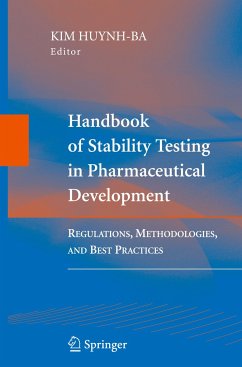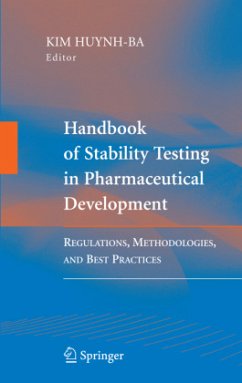
Pharmaceutical Stability Testing to Support Global Markets

PAYBACK Punkte
57 °P sammeln!
The International Conference of Harmonization (ICH) has worked on har- nizing the stability regulations in the US, Europe, and Japan since the early 1990s. Even though the Stability Guidelines Q1A (R2) was issued over a decade ago, issues surrounding this arena continue to surface as the principles described in the guideline are applied to different technical concentrations. As a result, the stability community has continued to discuss concerns and find ways of harmonizing regulatory requirements, streamlining practices, improving processes in order to bring safe and effective medical supplies...
The International Conference of Harmonization (ICH) has worked on har- nizing the stability regulations in the US, Europe, and Japan since the early 1990s. Even though the Stability Guidelines Q1A (R2) was issued over a decade ago, issues surrounding this arena continue to surface as the principles described in the guideline are applied to different technical concentrations. As a result, the stability community has continued to discuss concerns and find ways of harmonizing regulatory requirements, streamlining practices, improving processes in order to bring safe and effective medical supplies to the patients around the world. In 2007, the American Association of Pharmaceutical Scientists (AAPS) Stability Focus Group organized two workshops - the Stability Workshop and the Degradation Mechanism Workshop. These meetings attracted many industry scientists as well as representatives from several regulatory agencies in the world to discuss important topics related to pharmaceutical stability practices. Recognizing the importance of documenting these discussions and with the permission of AAPS, I have worked with speakers to assemble a collection of 30 articles from presentations given at these two meetings, mainly the Stability Workshop. I trust that this book will be beneficial to all of you in providing guidance and up-to-date information for building quality stability programs. v Freedom of our mind is Mother of all inventions.












